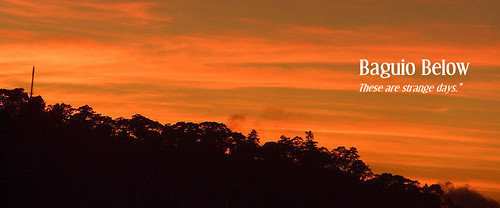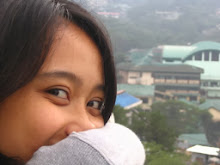Maybe I should start with the easy things first.
The other night I finished The Magician’s Land, Lev Grossman’s concluding volume to his Magicians Trilogy. Before that, I blasted through The Magician King, reading even during a challenging fieldtrip and an emotional, impromptu visit home. I’d been very vocal about how I felt about the first book, The Magicians, and its lead protagonist Quentin Coldwater. By all accounts, I was perfectly fine abandoning the series. Then L and I came across it on a list of the best fantasy novels of all time. It wasn't so much that it was mentioned or even that it was quite near the top, but the reviewer said that people who gave up after the first book were missing out. Had I been wrong? Intrigued, I went about quietly acquiring the sequels.
I was impressed with the writing in The Magician King. I remembered vaguely the same about The Magicians, but the feeling had been eclipsed by how much I loathed Quentin. While reading The Magician King, I began to worry that maybe I hated Quentin because I identified with him.
This is where it gets sticky.
I won’t get into what Grossman was trying to do with fantasy tropes, his attempt to write "Harry Potter for adults." Many have written about it at length and more eloquently than I could ever do. Instead, I want to talk about how Grossman's development of Quentin and friends made me reflect on my own growth.
So, what to make of Quentin? In The Magicians, he comes off as an entitled, whiny douche who only ever thinks about himself. He has the gift of magic but cannot appreciate it, even having room to brood. Young Quentin wants to be a hero because that’s how it is in the stories but he is not noble or brave, makes stupid choices, and hurts the people he loves. However, by the end of this first book, Quentin has lost much and learned difficult truths. In The Magician King, Quentin is finally a king of the magical land of Fillory and the bastard is bored. He is living the life but cannot shake the feeling that there should be something more. He, along with Julia, goes on a quest and we catch a glimpse of the man he could be. He still doubts himself, but has grown a pair. In The Magician’s Land, Quentin has finally come into his own. He is far from perfect but he knows himself and finds purpose.
I had always known I wanted to Make a Difference. I and many of my generation were led to believe that we are unique, talented individuals capable of such. At school, my peers and I were herded into groups distinguished for academic excellence, leadership or whatever above-average competence. So it was, believing in my own power (sometimes known as "feeling infinite"), that I stepped out, eyes bright, heart aflame, into the real world. But very much like Quentin and his friends, I quickly found out that reality did not often conform to our fantasies. I wanted to change the world but Life was not sticking to the plan. It had the audacity to be unfair. I’d overthink myself into inaction or wallow needlessly about what I thought, at the time, were grave issues. I traveled but almost always missed the point. I would not stay very long in jobs – a year at most – because I would get an itch that would eventually grow into a rash of dissatisfaction. I couldn’t be happy wherever I lived: my hometown Baguio was claustrophobic while Metro Manila was inhospitable. My mind would yearn for greater heights, but I would feel empty when I got there. I could not be satisfied. I would not be still. Quentin was a mirror and I wanted to punch him, defensive mode on.

In The Magician’s Land, Quentin and his student Plum have a conversation about why we have magic:
“What do you think magic is for? [...] I used to think about this a lot,” Quentin said. “I mean, it’s not obvious like it is in books. It’s trickier. In books there’s always somebody standing by ready to say hey, the world’s in danger, evil’s on the rise, but if you’re really quick and take this ring and put it in that volcano over there everything will be fine
“But in real life that guy never turns up. He’s never there. He’s busy handing out advice in the next universe over. In our world no one ever knows what to do, and everyone’s just as clueless and full of crap as everyone else, and you have to figure it all out by yourself. And even after you’ve figured it out and done it, you’ll never know whether you were right or wrong. You’ll never know if you put the ring in the right volcano, or if things might have gone better if you hadn’t. There’s no answers in the back of the book.”
“I still have no idea what magic is for. Maybe you just have to decide for yourself. But you definitely have to decide. It’s not for sitting on my ass, which I know because I’ve tried that. Am I making any sense?”
Lev Grossman’s books are about bright people who don’t have a Voldemort to fight: “It’s a struggle to figure out what magic is for, when it’s not obvious.” I remember walking home from a party once, semi-drunk, talking with a friend about how our generation doesn't have a Big Bad the way our parents’ had martial law. Ours is a faceless, nameless enemy - a slow, chronic affliction rather than an acute attack. Where do we land our punches? To whom do we direct our barbs?
We are always privy to Quentin's self-doubt in the first two books, but this is not the case in the third. Here, Quentin just does things sans the paralyzing internal monologue. The transformation occurs gradually over a 10-year timeline of hits and, sometimes very tragic, misses. Quentin stops being that douche teenager and becomes someone we genuinely like. We are rewarded for sticking it out with him when Grossman shows us how the others actually see him. Here is High King Eliot wishing he could confide in his best friend Quentin. There is the student Plum wanting to do magic like her experienced, able teacher Quentin.
The Magicians Trilogy is filled with many wonders, both pleasurable and demented. Many of the moments of real joy have to do with the magic and spells (Quentin and Plum travel to Antarctica) but some of them are actually when the characters are putting in honest labor to achieve something (Julia studying in Murs, Quentin and his research). And the language is stellar. In The Magician King, Quentin’s chapters seem tame and structured in contrast to Julia’s unruly and defiant ones. The disparity is intentional - we are thrust from Quentin's ordered life into Julia's experiences where she has to claw her way, ghetto style, through a rough magical education.
I didn't quite struggle so much as flounder around in my 20s. I understood that I needed to do something, but it wasn't always clear to me what that was. Not knowing made me thrash around in my head, indulging my demons.
In a year, I will be Quentin's age in The Magician's Land. But unlike the mature, tempered magician, I don’t think I’ve quite arrived. I like to think I've become better at just being, that I've shed some of that compulsive dissatisfaction. But I still suffer bouts of crippling insecurity – a hazard of working in the academe? I still do things because it’s what's expected of me, though I've been trying to be better at being honest with other people and myself.
Some have called the Magicians Trilogy derivative, pilfering elements of this and that beloved fantasy classic under the guise of deconstruction. Whether these literary calisthenics have succeeded or not is beside the point. Grossman has written a riveting study about personal growth, about being a hero in an age where we don't really know what that means anymore. Even now, his books are still burning a hole in my head. I think about who Quentin discovered himself to be in the end and wonder when I too will finally come into my best self.






0 seen below:
Post a Comment